16 February 2023
![]() 8 mins Read
8 mins Read
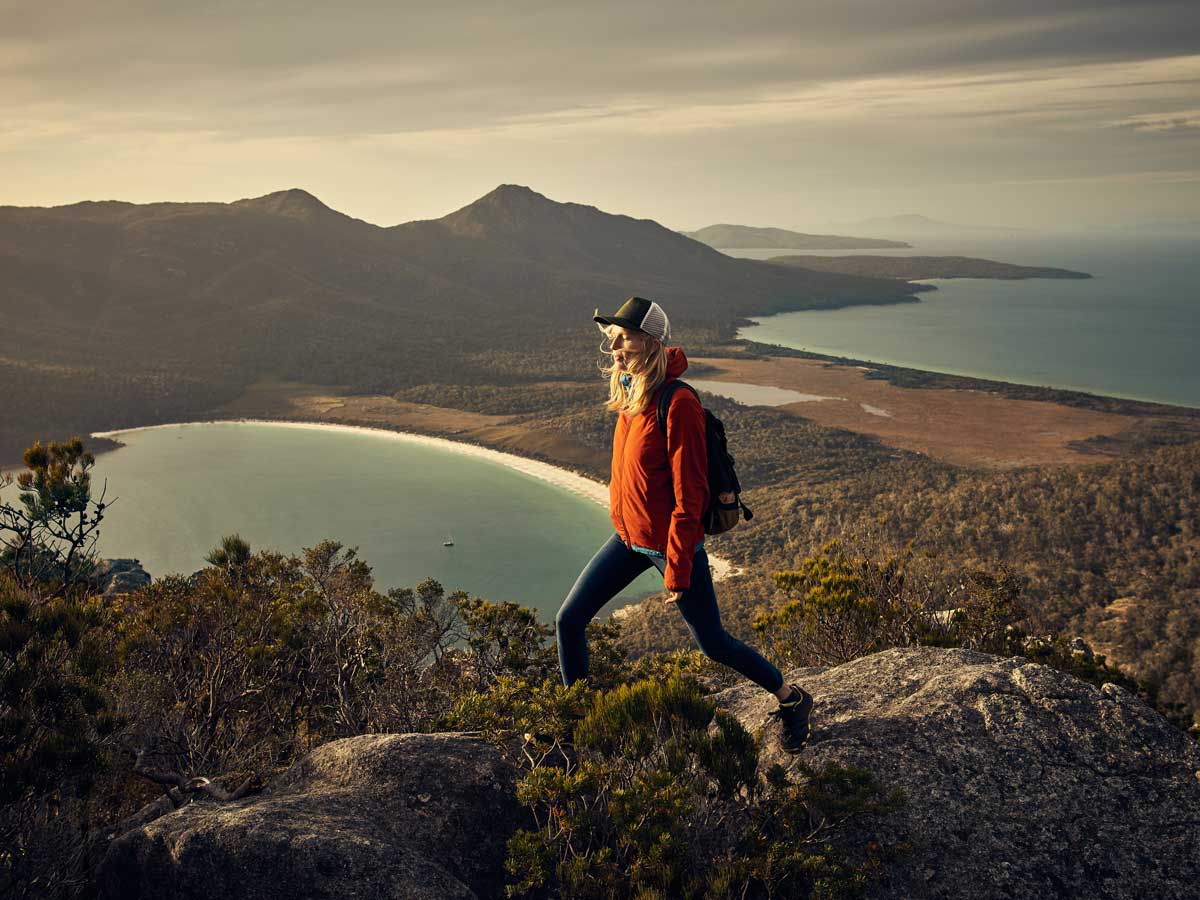
Green. Sustainable. Organic. The buzzwords of our earnest efforts to do better as we finally start to understand the consequences of our collective global actions over the last few centuries are increasingly attached to everything from our morning coffee to the cars we drive to the energy being pumped into our homes.
They are also being liberally bandied about within the tourism industry, which, thanks to air travel and the over-tourism we were witnessing before the pandemic hit, has been left wanting when it comes to making substantiative efforts to adapt and change.
According to Professor Tim Flannery, whom we spoke with in late 2021, we haven’t reached the overall tipping point when it comes to climate change yet (scientists view climate change as a series of tipping points), but we are getting perilously close and need to act now, especially in areas like travel.
“We love [travel]. It enriches our life hugely, but it does have a big impact on the climate for what is a discretionary thing,” he told us. “If I were you, I’d be looking at your messaging. What are the options for flying with offsets? What’s the future looking like for airlines in terms of flying on carbon-neutral fuels? Who’s doing any of this work? With cruising, who has hydrogen-powered cruise ships? Who’s developing them? The options are all there, but we’ve got to get serious about doing it now, as 10 years from now it’s going to be too late.”

Sustainable tourism should make optimal use of environmental resources while respecting host communities. (Image: Central Coast; Destination NSW)
According to the United Nations World Tourism Organization (UNWTO), sustainable tourism should:
1. Make optimal use of environmental resources that constitute a key element in tourism development, maintaining essential ecological processes and helping to conserve natural heritage and biodiversity.
2. Respect the socio-cultural authenticity of host communities, conserve their built and living cultural heritage and traditional values, and contribute to intercultural understanding and tolerance.
3. Ensure viable, long-term economic operations, providing socio-economic benefits to all stakeholders that are fairly distributed, including stable employment and income-earning opportunities and social services to host communities, and contributing to poverty alleviation.
With the onus on all of us to do our bit, how do we actually make informed decisions about travel without getting swayed by buzzwords and being drenched in greenwashing?
It is all about doing your research when planning your travel, choosing operators that demonstrate a solid and accountable commitment to sustainable, conscious and ethical practices and rewarding operators, businesses and initiatives that are planning and striving to contribute to solutions that will make a real difference, even if it comes as a premium.
Ask questions, seek feedback and if you can’t find what you want immediately, agitate and advocate for something better in the future. And yes, it might take up more of your time, but considering that we are running out of exactly that when it comes to the health of our planet, how can you see it as anything but well spent?
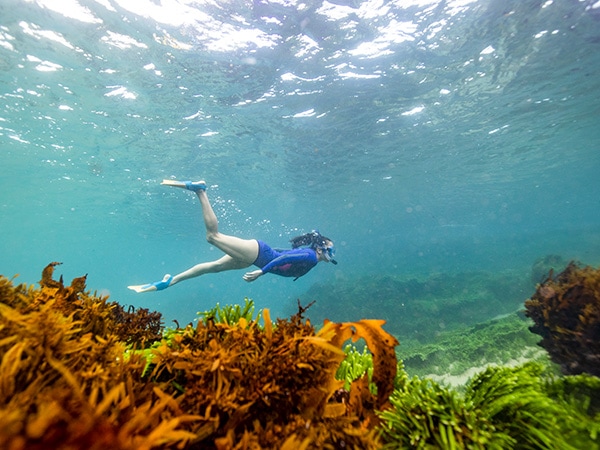
The onus is on us to do our bit to make better travel choices. (Image: Destination NSW)
Certification is another buzzword becoming increasingly popular within the tourism industry, but certified by who and for what should be the first questions you ask yourself. With almost no standardised, universally recognised guidelines on the benchmarks above which eco credibility is reached, it can be hard to fathom what’s good and bad in this space.
But that’s no reason to be sceptical about everyone in the industry and do nothing. The good news here in Australia is that we actually have a number of credible industry bodies in tourism that evaluate and award certification and accreditation to businesses striving to do better.
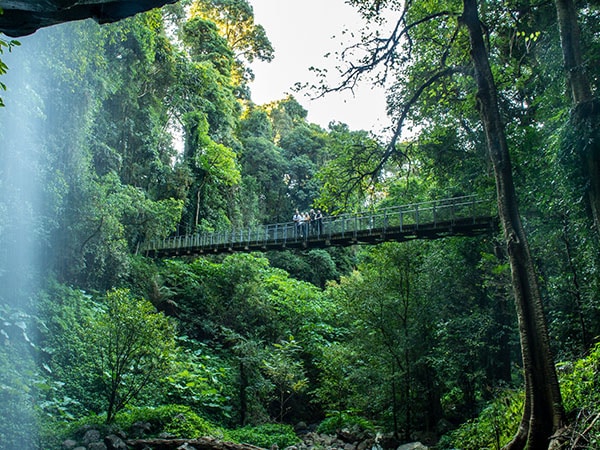
In Australia, a number of credible tourism industry organisations exist to accredit businesses striving to do better. (Image Source: Destination NSW)
The Australian Tourism Industry Council (ATIC) is the national representative body for tourism here, which manages national industry development programs including the Quality Tourism program, which includes the ascending Sustainable Tourism Accreditation and EcoStar Accreditation.
The first step in the process for businesses looking to have their eco credentials recognised is achieving Quality Tourism Accreditation, which confirms they have met specific criteria that ensure they are committed to exceeding expectations on customer service and meet the highest standards of business practice.
With this stage ticked, they can then move on to achieve ATIC’s Sustainable Tourism Accreditation, which guides businesses to provide quality offerings that “address this changing global trend of experiential tourism” by demonstrating sound sustainability practices.
For businesses that go above and beyond when it comes to environmental management, EcoStar Accreditation recognises a commitment to environmental management based on stringent criteria such as contributing to conservation and sustainability, establishing an environmental risk management strategy, supporting and benefiting the local community, and recognition of cultural and heritage issues.
Brisbane-based Ecotourism Australia (EA) is another organisation assisting Aussie travellers, one that has been much in the news of late having bestowed its exacting certification on a handful of regions including the NSW Central Coast and Western Australia’s Margaret River Region.
The non-government, not-for-profit organisation, established over 30 years ago, acts to promote and support the ecotourism industry in Australia, with its flagship ECO Certification holding the distinction of being the world’s first national ecotourism certification program.
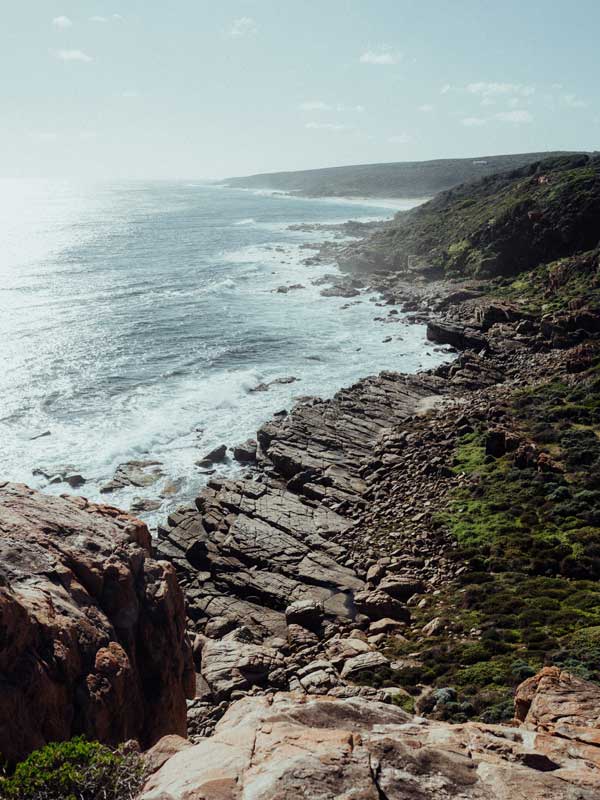
Walk the Cape to Cape trail in the eco-friendly Margaret River Region. (Image: Tourism Western Australia)
Internationally respected for its industry standards, it is also recognised by the Global Sustainable Tourism Council (GSTC), a US-registered not-for-profit representing national governments, hotel groups, travel companies and NGOs including the likes of Switzerland Tourism and Singapore Tourism, Lonely Planet, Google, Airbnb and our own Intrepid Travel.
Ecotourism Australia uses the Green Destinations framework recognised by GSTC to assess destinations and tourism providers across 100 or so criteria including managing volumes and activities, climate change adaptation, community support, preventing exploitation and discrimination, protection of cultural assets and protection of sensitive environments.
What this effectively means is that credibility, as a result of its position as the national peak body for sustainable and nature-based tourism, underpins Ecotourism Australia’s programs, including its ECO Destination Certification, launched in 2018 to encourage and recognise operators and government working together to demonstrate a community-wide and entire-region commitment to sustainable tourism management practices including protecting the natural environment and bridging the gap between tourism and conservation.

Environmental management is based on stringent criteria focused on conservation, sustainability and recognising cultural and heritage issues. (Image: Emerald Beach; Destination NSW)
In addition to the aforementioned NSW Central Coast and Margaret River Region, which were certified this year, the Port Douglas Daintree region was recognised in 2019 followed by the NSW Coffs Coast in 2021.
EA is also committed to encouraging and assisting the tourism industry to take real steps towards acting in a way that both respects and reinforces the country’s unique Indigenous living cultures and rich cultural heritage through the Respecting Our Culture (ROC) Certification.
Designed by Aboriginal Tourism Australia (ATA) and administered by Ecotourism Australia, the program recognises tourism operators (including accommodation, tours and attractions) that are ‘committed to protecting cultural authenticity and integrity, developing sound business practices, environmental protection and acknowledging Indigenous peoples’ spiritual connection to the land and water’.
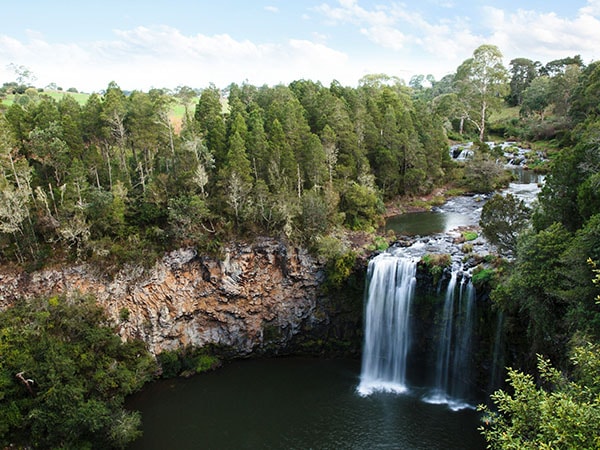
Dangar Falls, near Dorrigo on the Coffs Coast, has been recognised as an ECO Destination by Ecotourism Australia. (Image: Destination NSW)
Many companies, including those in tourism and hospitality, are embracing the B Corp Certification movement, confirming themselves as operators that strive to meet high standards of social and environmental performance, accountability and transparency.

Accredited sustainable and nature-based tours are on the rise. (Image: Tourism Western Australia)
The Melbourne/ Naarm-based not-for-profit B Lab, which debuted in Australia in 2006 (an offshoot of a global not-for-profit based out of the US), operates according to a vision of contributing towards a more caring and accountable global economy, awarding certification to companies that are committed to balancing profits and purpose, and which are making real efforts to have a positive impact on the people they employ, the communities they exist within and the environment as a whole.
Here in Australia, companies such as Aesop and Intrepid Travel have achieved B Corp Certification. There’s even a university course, conducted by Torrens University Australia – Championing Organisational Change: Introduction to B Corps – designed for those wanting to find out more about the values, processes and standards that underpin this global movement for good.
LEAVE YOUR COMMENT